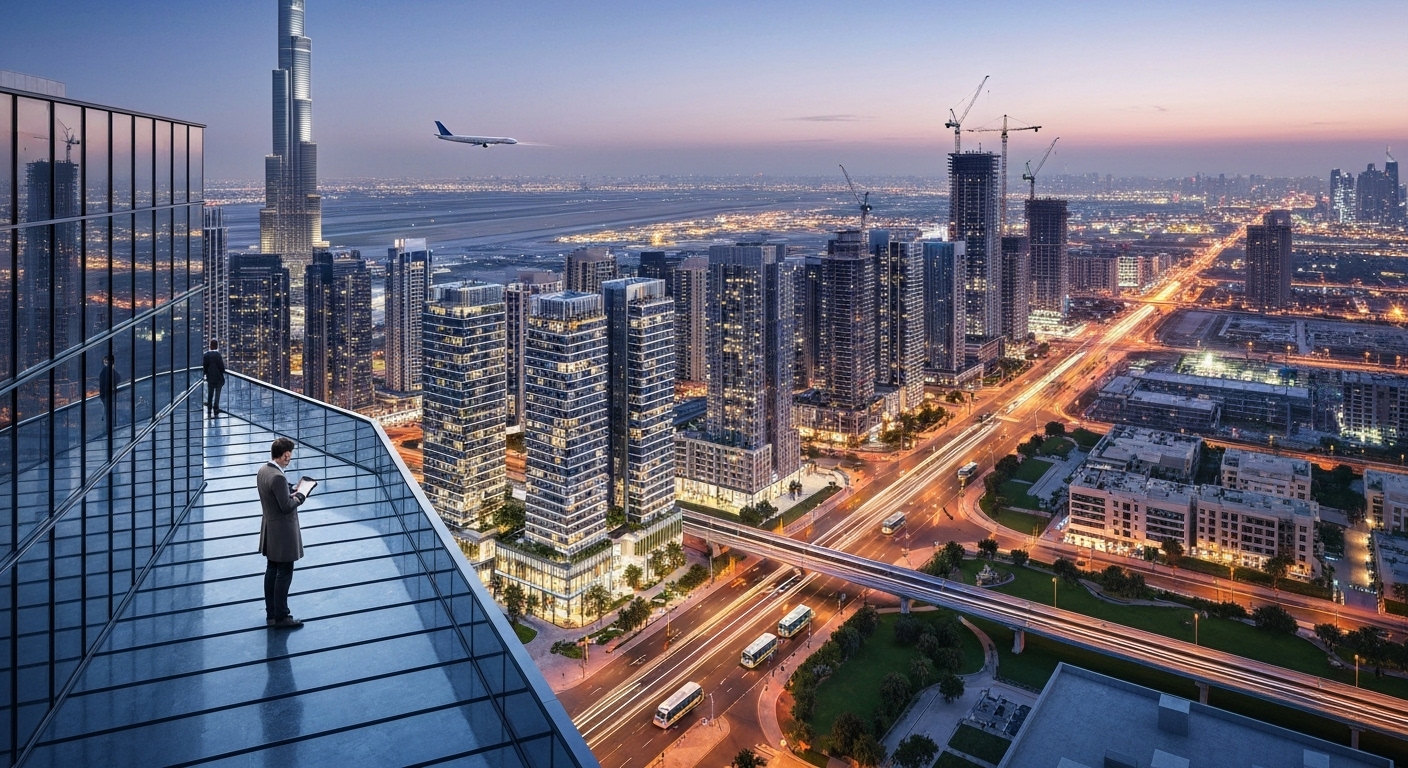As global economic uncertainties continue to shape investment landscapes worldwide, Dubai’s property market emerges as a beacon of resilience and opportunity. While international markets grapple with inflationary pressures and geopolitical tensions, Dubai’s strategic positioning and robust economic fundamentals paint an optimistic picture for 2026 and beyond.
Evaluating Dubai’s Economic Resilience Amidst Global Headwinds
Dubai’s economy has consistently demonstrated remarkable adaptability in the face of global challenges. The emirate’s diversified economic base, spanning tourism, trade, logistics, and technology, provides a stable foundation that insulates the property market from external shocks. Unlike markets heavily dependent on single industries, Dubai’s multi-sectoral approach ensures sustained demand for real estate across residential, commercial, and hospitality segments.
The city’s strategic location as a bridge between East and West continues to attract international businesses and investors, creating a steady influx of residents requiring quality accommodation. This geographic advantage, combined with world-class infrastructure and business-friendly policies, positions Dubai as a haven for capital preservation and growth.
Key Factors Driving Dubai’s Property Market Growth Towards 2026
Several fundamental drivers support Dubai’s property market trajectory. The ongoing population growth, fueled by expatriate professionals and entrepreneurs, maintains consistent housing demand. Additionally, Dubai’s transformation into a global technology hub through initiatives like Dubai Internet City and the broader smart city vision attracts high-value residents and businesses.
The tourism sector’s recovery and expansion plans, including major events and attractions, generate substantial demand for short-term rental properties and hospitality real estate. Furthermore, the UAE’s progressive visa policies, including long-term residency options and retirement visas, encourage long-term property investment from international buyers.
Infrastructure developments, including the expansion of the Dubai Metro, new airports, and smart city initiatives, enhance property values and create new investment corridors throughout the emirate.
Potential Economic Uncertainties and Their Impact on Dubai Real Estate
While Dubai demonstrates strong resilience, global economic uncertainties warrant careful consideration. International inflation rates, currency fluctuations, and supply chain disruptions could influence construction costs and property pricing. However, Dubai’s proactive economic management and substantial foreign reserves provide buffers against such external pressures.
Rising interest rates in major economies might affect international investor appetite, though Dubai’s competitive financing options and attractive rental yields help maintain investment appeal. The emirate’s track record of navigating previous economic cycles, including the 2008 financial crisis and pandemic-related challenges, demonstrates its ability to adapt and emerge stronger.
Government Strategies and Regulatory Frameworks Stabilizing the Market
The UAE government’s strategic initiatives provide robust market stabilization. The Dubai 2040 Urban Master Plan outlines sustainable development goals that ensure balanced growth and prevent market oversupply. Regulatory frameworks, including the Real Estate Regulatory Agency‘s oversight, maintain transparency and investor confidence.
Recent policy changes, such as reduced transaction costs and streamlined processes for property registration, enhance market liquidity and attract new investors. The government’s commitment to economic diversification through Vision 2071 ensures long-term stability and growth prospects for the real estate sector.
Investment Opportunities and Risks for 2026 and Beyond
The Dubai property market presents compelling opportunities across various segments. Emerging areas like Dubai South and Mohammed bin Rashid City offer significant growth potential, while established locations provide stable returns. The luxury segment continues to attract ultra-high-net-worth individuals, while affordable housing initiatives cater to the growing middle-class population.
Technology integration in real estate, including smart homes and sustainable developments, creates new value propositions for investors. However, investors should consider factors such as market timing, location selection, and due diligence when making investment decisions.
Expert Predictions and Danube Properties’ Outlook for the Future
Leading real estate experts predict continued growth in Dubai’s property market through 2026, with moderate price appreciation and stable rental yields. The market’s maturation brings increased sophistication and attracts institutional investors seeking long-term value creation.
Danube Properties remains optimistic about Dubai’s real estate future, leveraging our deep market knowledge and strategic project positioning to deliver exceptional value to investors. Our commitment to quality development, innovative design, and customer satisfaction aligns with Dubai’s vision for sustainable growth.
As we navigate toward 2026, Dubai’s property market stands poised to capitalize on global economic shifts while maintaining its position as a premier investment destination. The combination of strategic government support, economic diversification, and robust fundamentals creates an environment where informed investors can achieve substantial returns while contributing to Dubai’s continued transformation into a global metropolis.




